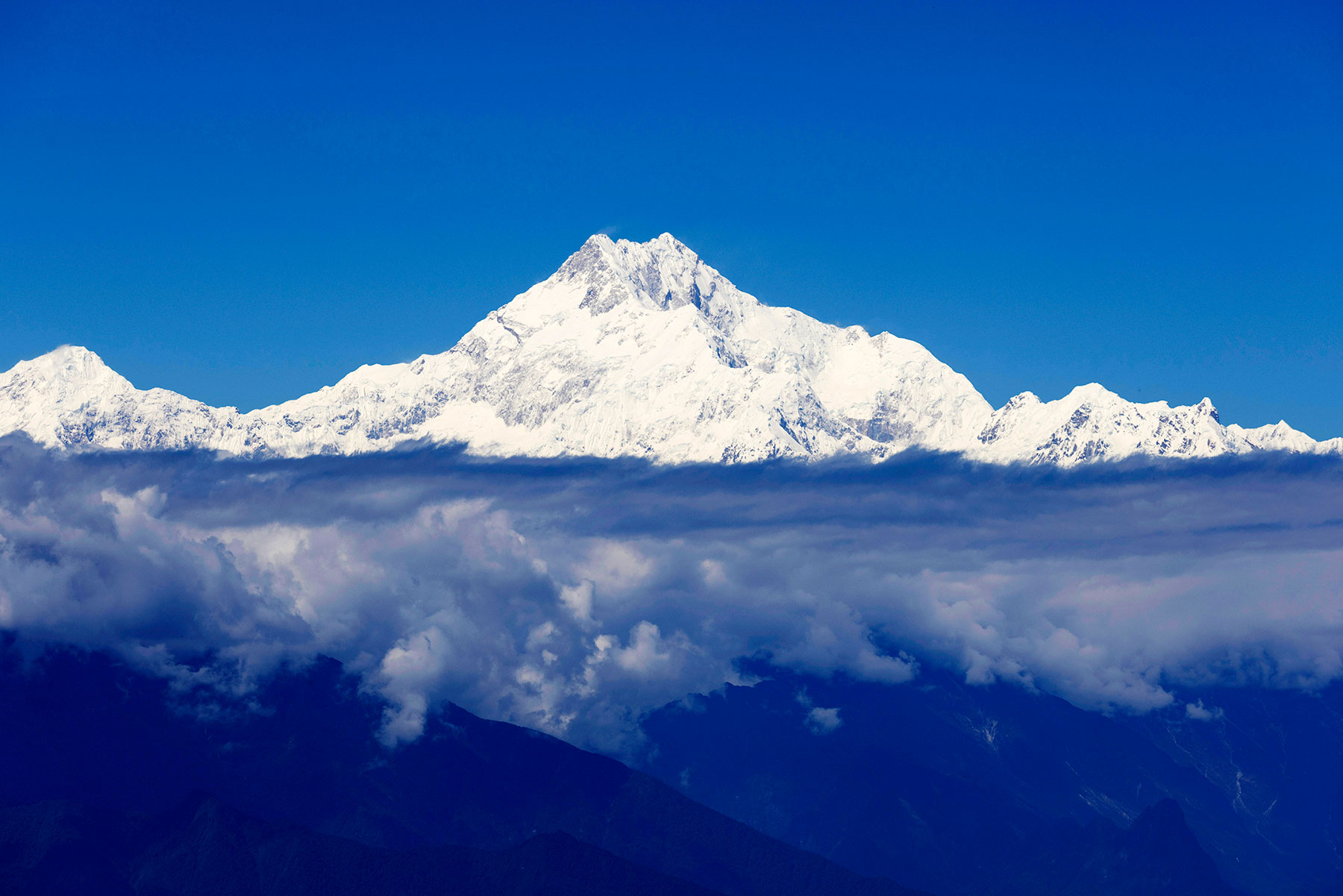Russia-India relations are evolving and deepening. The Arctic is becoming a critical region for further cooperation between the two countries as Russia - Western relations continue to breakdown. In this light, India-Russia relations could prove to be beneficial to both countries. What are India’s priorities in the Arctic and in its relations with Russia? Which areas are most beneficial for both countries? Can paradiplomacy be an option to further bilateral cooperation? Raj Kumar Sharma, PhD, Senior Research Fellow, NatStrat, India, comments on these and other questions.
Russia-India relations are evolving and deepening. The Arctic is becoming a critical region for further cooperation between the two countries as Russia - Western relations continue to breakdown. In this light, India-Russia relations could prove to be beneficial to both countries. What are India’s priorities in the Arctic and in its relations with Russia? Which areas are most beneficial for both countries? Can paradiplomacy be an option to further bilateral cooperation? Raj Kumar Sharma, PhD, Senior Research Fellow, NatStrat, India, comments on these and other questions.
On the scale of India’s foreign policy priorities, where would you place the Arctic? What are the key trends in India’s Arctic policy?
The answer to this question depends on how we see India’s policy in the Arctic. If we see it from a strategic and geopolitical perspective, then the Arctic is less of a priority for India. But, if we see it from a climate change and environmental angle, then the answer is high priority. India announced its Arctic Policy in 2022 which lays down six pillars: science and research, climate and environment protection, economic and human development, transportation and connectivity, governance and international cooperation, and national capacity building. India is gradually upgrading its policy focus and its capabilities to enhance its understanding of the Arctic and this is only going to further intensify in the coming years.
What are India’s priorities in its relations with Russia? Are Arctic issues among them, or is it something marginal?
India’s relationship with Russia has been the only ‘constant’ in its foreign policy, despite numerous geopolitical changes in the last seven decades. Policy makers in New Delhi view a strong relationship with Russia as an ‘insurance policy’ against great power rivalry that could harm India’s core national interests. Currently, India also enjoys a good relationship with the US-led Western world. There has been pressure on India to weaken its ties with Russia. The threat of American sanctions has been hanging over the India-Russia defence partnership. India has been trying to diversify its relationship with Russia, which traditionally has remained over-dependent on defence trade. So, the Arctic strongly represents India’s attempts to redefine and diversify its relationship with Russia. Cooperation between Russia and Western countries has broken-down due to the conflict in Ukraine. Russia is already talking about the ‘Easternization’ of its Arctic policy, in which countries like India have an important role to play. India understands the importance of Russia in the Arctic as it not only has the biggest coastline, but also the largest population and natural resources in this region. Hence, the Arctic is the next frontier in India’s ties with Russia. Russia sees itself as the northern most country in the world. It has an image of representing the Global North while India represents the views of the Global South. There is ample room for the two countries to cooperate in the Arctic.
What are India’s interests and goals with Russia in the Arctic?
There is a sense of ‘comfort’ and ‘trust’ in India-Russia ties. Keeping in mind Russia’s overall importance in the Arctic, India and Russia should stitch up a close partnership in this region. India has the right to engage in commercial activity in the Arctic under the 1920 Svalbard Treaty, as India was part of this treaty as a Dominion in the British Empire. Hence, cooperation in the hydrocarbon sector is important. India is one of the top three energy consumers in the world and always looks out for stable sources and supply of resources. The Arctic ticks those Indian requirements. Self-reliance in Arctic projects and independence from Western technology are two key features in Russia’s current Arctic policy. In this regard, the India-Russia partnership could prove to be beneficial. Russia can also look to increase the supply of high-quality coking coal (anthracite) to India as India needs it to make steel and aluminium. Russia’s natural resources in the Arctic can ensure India’s economic security and thus, its national security. India and Russia could also work together to improve digital connectivity in the Arctic. India Space Research Organisation (ISRO) had a plan to put up satellite receiving stations in the Arctic but that has not happened so far. Both countries have a history of space cooperation and that could now help develop the Arctic region. India’s expertise in providing effective satellite enabled communication and digital connectivity in remote areas could be used to fill existing gaps in the Arctic. India and Russia are also working on the International North South Transport Corridor (INSTC) and the optimistic scenario is that this corridor could be useful for India to access the Arctic. So, to sum up, India-Russia areas of cooperation in the Arctic could include shipbuilding, mining, hydrocarbons, port infrastructure building, digital connectivity, and tourism. India should also have regular institutionalised dialogue with Russia on Arctic matters.
Do you see any potential for developing regional ties between India’s provinces and Russia’s Arctic regions?
Yes, there is a lot of potential in this regard. ‘Paradiplomacy’ is an important element to improve mutual understanding and people to people connections. The Arctic is home to forty different groups of indigenous people who are sensitive to climate change, changes in their habitat, environment, and livelihood. But they also want to be part of whatever development takes place in their areas. India can help in this regard, given its own development experience that has been sensitive to its indigenous population. People in the Russian province of Karelia near the Arctic use natural medicine; locals like to use herbs and plants to treat many diseases. In India, ‘Ayurveda’ has a rich history of being an alternate treatment method. These two experiences could be linked by exchanging expert knowledge. Karelia also has good tourist potential and sister city pacts between Karelia-Kerala and Karelia-Goa could be signed, as many tourists come to Russia from these two Indian cities. Interestingly, the Arctic also features in India’s racial debate when, in his book, The Arctic Home in the Vedas (1903), freedom fighter Bal Gangadhar Tilak argued that the ancestors of India’s ancient Vedic civilisation lived in the Arctic.
Could you please comment on the Third Pole policy and what it means for India?
In India, the Himalayas are generally seen as the ‘Third Pole’, apart from the Arctic and the Antarctica. In that sense, experts have described India as a ‘Tri-Polar’ nation. There are critical linkages between these three poles which have a direct impact on India. Arctic research could provide India with clues as to how Himalaya’s climate may change in coming years, given the fact that weather conditions are similar in both places. Melting Himalayan glaciers is something that India has been studying and the Arctic is likely to provide some answers to this issue. The idea is to harmonise India’s Polar research with its Himalayan research. Indian monsoons are impacted by the developments in the Arctic. We have seen extreme weather events recently in Northern India that can be directly related to the Arctic. A recent research paper has indicated that summer sea ice loss in the Kara Sea region of the Arctic may trigger extreme monsoon rainfalls in central India in September. According to another study conducted by the scientists at India’s National Centre for Polar and Ocean Research, warm Arctic conditions have links to intense rainfall over the Indian subcontinent while cold conditions in the Arctic are associated with weak spells of rain over the Indian subcontinent over the past thousand years. Melting Arctic ice is likely to increase the water level in the Indian Ocean and would impact Indian people living along its coastline. Hence, the Third Pole has important connections with the Arctic for India.








